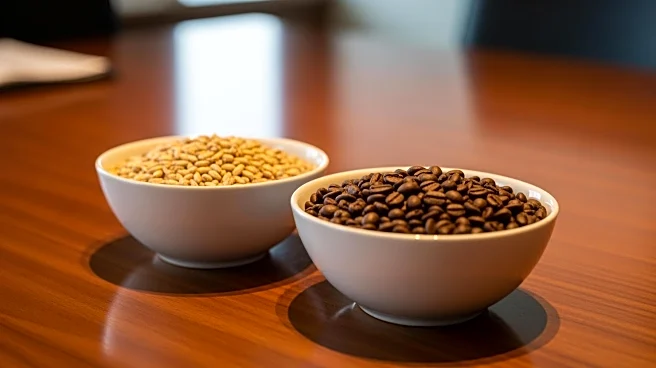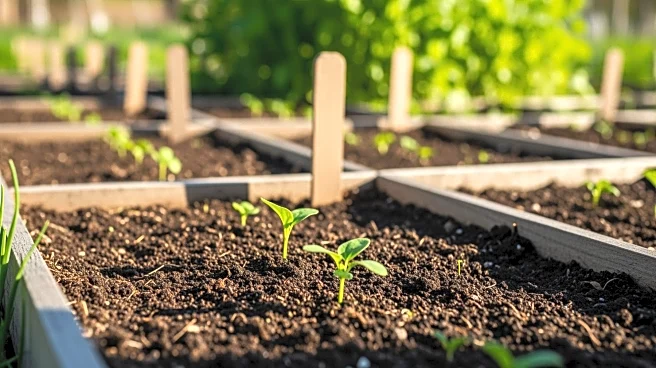What's Happening?
President Trump has issued an order modifying the scope of tariffs on certain agricultural products imported from Brazil. This decision follows ongoing negotiations with Brazilian President Luiz Inácio
Lula da Silva, aimed at addressing concerns outlined in Executive Order 14323. Initially, a 40% ad valorem duty was imposed on specific Brazilian imports due to perceived threats to U.S. national security and economy. However, recent progress in negotiations has led to the removal of these duties on certain agricultural products. The modifications are effective for goods entered for consumption on or after November 13, 2025. The Secretary of State, along with other senior officials, is tasked with monitoring the situation and implementing the order.
Why It's Important?
The modification of tariffs on Brazilian agricultural imports is significant for U.S.-Brazil trade relations and the agricultural sector. By easing these tariffs, the U.S. aims to foster better diplomatic ties and economic cooperation with Brazil. This move could benefit U.S. consumers and businesses by potentially lowering prices on Brazilian agricultural goods. It also reflects a strategic shift in U.S. foreign policy, emphasizing negotiation and collaboration over unilateral economic measures. The decision may influence future trade policies and negotiations with other countries, setting a precedent for resolving international trade disputes through dialogue.
What's Next?
The Secretary of State will continue to monitor the situation and consult with relevant officials to assess the need for further actions. The ongoing negotiations with Brazil may lead to additional changes in trade policies, depending on the progress made. U.S. Customs and Border Protection will process refunds for duties collected under the previous tariff regime. The outcome of these negotiations could impact future trade agreements and economic strategies between the two nations, potentially influencing broader international trade dynamics.








